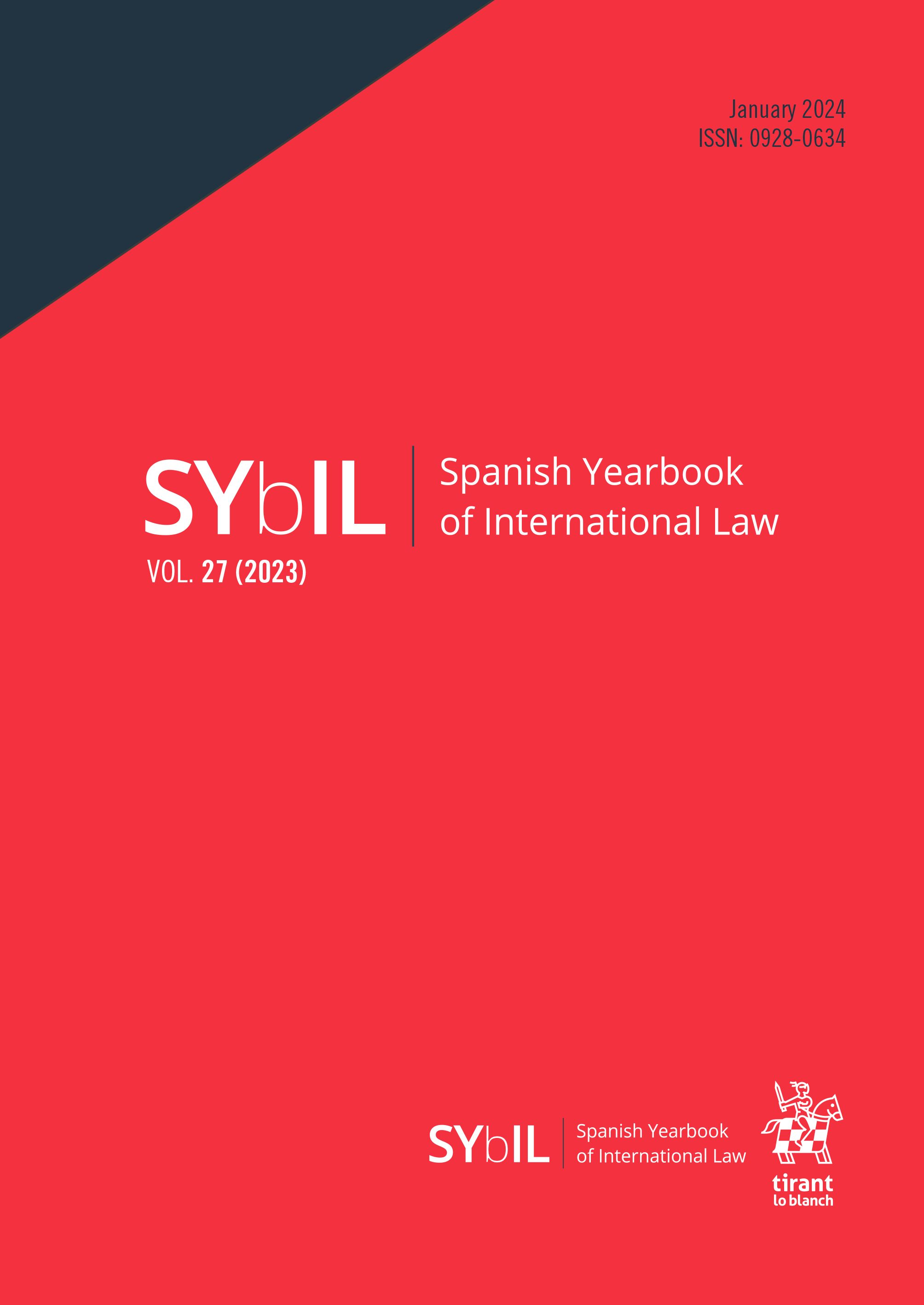Self-determination and Access to Independence under Current International Law: From Language to Concept
DOI:
https://doi.org/10.36151/SYBIL.2024.002Palabras clave:
self-determination of peoples, territorial integrity, secession, remedial secession, customary norms, ius cogensResumen
This article examines the legal concepts and principles describing and regulating the means of accessing independence in current general international law. Specifically, in relation to the essential (legal) principle of self-determination of peoples, with its highly political and sensitive content, it calls for an urgent return to the proper international law method of interpreting international norms. After rigorously identifying this method and some of the main concepts of the theory of international law, the article proves that the object of the international right to external self-determination of peoples is not a right to unilateral secession as an exception to territorial integrity (as seems to be generally assumed), but a right to restore sovereignty and territorial integrity, attributed to colonial and occupied peoples. It further proves that general international law is not neutral with regard to secession (as also seems to be generally assumed) but, on the contrary, that secession is limited in the international norm that proclaims the right to internal self-determination, i.e., the right of a state’s whole population to freely determine, without discrimination, the status of its own territory, among other things; in short, this right is protected and reinforced by the tacit limitation on secession in that same international norm.
Publicado
Número
Sección
Licencia
Derechos de autor 2024 Spanish Yearbook of International Law

Esta obra está bajo una licencia internacional Creative Commons Atribución-NoComercial-SinDerivadas 4.0.




